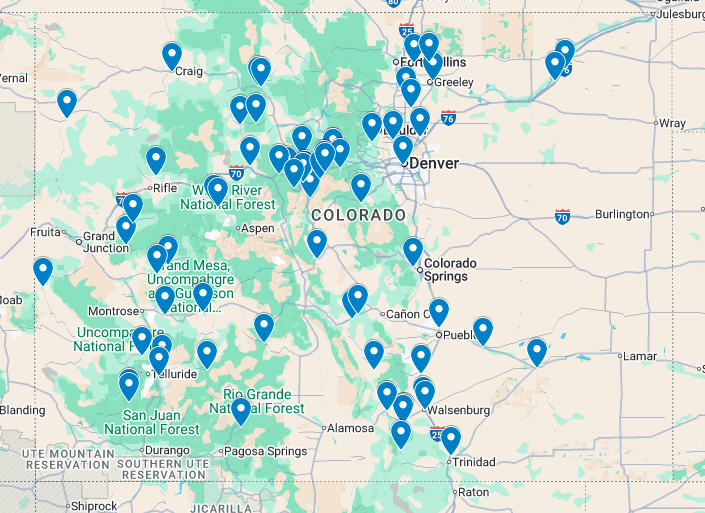CDOT removes 136 cameras, including along I-70 corridor and mountain passes, after contract expires
The transportation department says it has plans to replace about 69 of the cameras by 2027

Austin Colbert/The Aspen Times
The Colorado Department of Transportation has removed about 136 cameras from roadways across the state.
Residents in the High Country often used these cameras, many of which were located on mountain passes and rural roads, to check driving conditions. This was especially helpful in the winter when snowy conditions and ski traffic impacted local commutes.
“These cameras were a really big deal for us, especially in the winter,” said Jeff Delazaro, who noticed earlier this summer that several cameras had been taken down on Berthoud Pass, which he drives regularly on his way to his place in Tabernash.
The cameras were removed after the transportation department’s contract with LiveView, the company that operated the cameras, was allowed to expire in July “due to cost and contract limitations,” CDOT Major Projects Communications Manager Stacia Sellers said in an email.
The cameras that were removed include 17 located on Interstate 70 from Vail to Frisco, five that were on U.S. Highway 40 near Berthoud Pass, four on U.S. Highway 6 near Loveland Pass, two on Colorado Highway 82 near Aspen and three on U.S. Highway 40 near Rabbit Ears Pass, among others.
CDOT has plans to replace about 69 of the cameras with new cameras that the transportation department will own, Sellers said. But she noted that CDOT cannot guarantee that all LiveView camera sites listed in the project will be replaced, “as this depends on final design and cost estimates.”
The camera replacement project has an $8 million budget, Sellers said. Most of the new cameras installed will only capture still frames, but if the cameras are installed near an existing fiber optic network, there could be streaming, she said. The project started last month and is expected to be completed by October 2027.

Although transportation officials attempted to find a new company to continue third-party camera services at locations that won’t be replaced, Seller said rates were three to 10 times higher than current rates and could not meet CDOT’s requirements.
Even after the removal of these LiveView cameras, CDOT still has a little over 1,000 cameras on Colorado roads, Sellers said. In many places where cameras were removed, there is a nearby camera that remains in operation.
COTrip.org and the COTrip planner app can provide road and weather conditions for drivers, Sellers said. That includes color-coded maps that indicate whether roads are dry, snow-packed or icy.
Like many Colorado drivers, Delazaro said that he consults a “confluence of data” before hitting the roads, including Google Maps, Waze, COTrip.org and CDOT cameras. While the removal of the cameras isn’t the “end of the world,” he said it was just one more data point that he and other drivers would take into consideration for safety.
“It will make it more uncertain what the road conditions are. It’ll be more like, ‘OK, I’ll find out when I get there,'” Jeff Delaaro said. “There’s been plenty of times when the road might say it’s open (on COTrip.org) and then you go check the camera and it’s closed, or vice versa, because there’s always a real-time lag with CDOT.”
CDOT has provided a full list of the cameras, including those that it plans to replace, that can be viewed at tinyurl.com/LiveViewCameras.

Support Local Journalism

Support Local Journalism
As a Summit Daily News reader, you make our work possible.
Summit Daily is embarking on a multiyear project to digitize its archives going back to 1989 and make them available to the public in partnership with the Colorado Historic Newspapers Collection. The full project is expected to cost about $165,000. All donations made in 2023 will go directly toward this project.
Every contribution, no matter the size, will make a difference.










